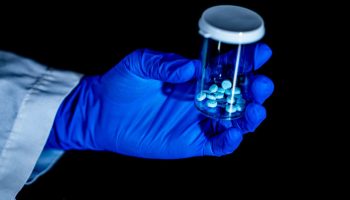Adderall can be highly addictive, and individuals who misuse Adderall can quickly develop a substance use disorder. Rehab is an important first step in recovery but not the end. Aftercare is critical to maintaining sobriety and preventing relapse and is essential for long-term recovery success after Adderall rehab in the following ways:
Provides ongoing support: Aftercare provides individuals in recovery with ongoing support and resources to help maintain sobriety. This may include therapy, support groups, or medication-assisted treatment (MAT) and is designed to help prevent relapse and promote lasting recovery.
Addresses triggers and cravings: Triggers and cravings are a common part of recovery, and aftercare can help individuals develop strategies for managing these challenges. Whether it is through therapy, support groups, or other forms of support, aftercare can help individuals build a toolkit for managing triggers and cravings and preventing relapse.
Helps manage stress: Stress is a common trigger for relapse, and aftercare can help individuals manage stress in healthy and effective ways. This may include practicing mindfulness, engaging in physical activity, or seeking support from a therapist or support group.
Supports emotional regulation: Emotional regulation is an essential aspect of recovery, and aftercare can help individuals develop effective strategies for managing their emotions. This may include therapy, support groups, or other forms of support, and it can help individuals maintain their sobriety by preventing the negative emotions that can lead to relapse.
Provides accountability: Aftercare provides individuals in recovery with accountability and helps ensure that they take the necessary steps to maintain sobriety. Whether it is through therapy, support groups, or other forms of support, aftercare can help individuals stay accountable and motivated to maintain their recovery.

Tips for staying sober after Adderall Rehab
Completing Adderall rehab is a significant accomplishment for anyone who has struggled with addiction to this stimulant medication. However, the journey toward lasting recovery does not end with the completion of treatment. In order to maintain sobriety, it is important to continue taking steps to support your recovery and prevent relapse. Here are some tips on how to stay sober after Adderall rehab.
Attend support groups: Joining a support group such as Narcotics Anonymous (NA), or Alcoholics Anonymous (AA) can be a valuable resource for individuals in recovery. Attending these groups provides an opportunity to connect with others in recovery and receive support and encouragement as you work towards maintaining sobriety.
Practice mindfulness: Mindfulness is the practice of being present in the moment and fully engaged in your experiences. This can be a powerful tool in maintaining sobriety as it helps you focus on the present moment, reducing the likelihood of dwelling on past experiences or worries about the future. Mindfulness practices such as meditation, yoga, and deep breathing can be especially beneficial.
Stay active: Exercise and physical activity are essential for overall health and can help reduce relapse risk. Engaging in physical activity helps improve mood and self-esteem, reduces stress, and provides a sense of accomplishment whether it’s participating in a structured exercise program or simply going for a walk, making physical activity a part of your daily routine can be a valuable tool in maintaining sobriety.
Build a strong support network: Having a solid support network of family and friends is critical to maintaining sobriety. Surrounding yourself with positive and supportive individuals who are committed to your recovery can provide a source of strength and motivation. It is also important to seek additional support through therapy or counseling.
Maintain healthy habits: Eating a well-balanced diet, getting enough sleep, and avoiding drugs and alcohol can all help support your recovery and prevent relapse. Staying physically and mentally healthy is integral to maintaining sobriety, and engaging in activities that promote overall health and well-being can be especially beneficial.
Avoid high-risk situations: Recognizing and avoiding high-risk situations, such as those that may trigger cravings for Adderall, is essential to maintaining sobriety. It is important to be mindful of the people, places, and experiences that may trigger drug cravings and to have a plan in place for how to manage these situations healthily and effectively.
Seek help if necessary: If you experience a setback or relapse, it is crucial to seek help immediately. A setback does not mean that your recovery has failed; rather, it is an opportunity to learn and grow. Seeking help and support can prevent further relapse and maintain your sobriety.

What does aftercare after Adderall rehab entail?
Aftercare is an essential component of Adderall rehab, providing ongoing support and resources to individuals in recovery. Adderall is a stimulant medication that can lead to addiction and dependence, and aftercare is designed to help prevent relapse and maintain sobriety. Here is an overview of what aftercare after Adderall rehab entails.
- Continuing therapy or counseling: Ongoing therapy or counseling is one of the most important aspects of aftercare. This can include individual, group, or family therapy and may address addiction and recovery issues, including triggers, coping skills, and emotional regulation.
- 12-step support groups: Attending support groups such as Narcotics Anonymous (NA) or Alcoholics Anonymous (AA) can be a valuable resource for individuals in recovery. These groups provide a sense of community and support and offer a safe and confidential environment to share experiences and receive encouragement.
- Developing a relapse prevention plan: A relapse prevention plan is a comprehensive strategy for maintaining sobriety that includes strategies for managing high-risk situations and triggers. This may include developing coping skills, avoiding people or places that may trigger drug use, and having a support system in place.
- Medication-assisted treatment: Medication-assisted treatment (MAT) may be a component of aftercare for some individuals. MAT involves the use of FDA-approved medications, such as buprenorphine, to help reduce cravings and prevent relapse.
In conclusion, aftercare after Adderall rehab is an essential component of the recovery journey, providing ongoing support and resources to individuals in recovery. By engaging in therapy, attending support groups, staying active, and developing a comprehensive relapse prevention plan, individuals in recovery can work towards achieving and maintaining lasting sobriety. It is important to remember that recovery is a process and that seeking support and resources as needed can help prevent relapse and promote long-term recovery.



